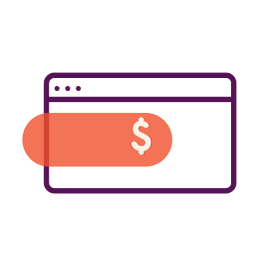As more and more Americans have become credit-aware in the past few years, late payments have become the stuff of nightmares, and justifiably so.
If you’re one of the millions of Americans who have worked long and hard to improve your credit scores since the recession, making one late payment and seeing your scores dip 30, 40, perhaps even 50 points can be soul-crushing. Here’s why late payments do so much damage and what you can do to prevent them, undo the damage and recover your great credit score.
The Sting of a Late Payment
Late payments are the most important factor in credit scoring models, the algorithms that crunch all your credit data to produce that three-digit number.
In consumer credit scoring models, payment history generally accounts for 35% of your credit score. Generally, the better your credit score, the more damage a late payment will do. That sounds really unfair to a lot of consumers with great credit, but think of it this way — your credit score measures your risk to a lender that you’ll miss payments or default. If you have a lower credit score already, you might already have some late payments on your credit report, so it comes as little surprise to lenders that you would make another late payment. If you have a near-perfect credit score, however, you likely don’t have any late payments on your record, and your first missed or late payment in a while can signal to lenders that something might be wrong and your score will drop to show you may be riskier. However, with late payments, the biggest impact is felt immediately and that black mark begins to fade over time and you’ll see your score recover as long as you continue to make on-time payments.
In business credit scores, payment history accounts for even more of your credit score — 50%-100%, depending on which model is being used. That’s huge! But the models break down late payments a bit differently than consumer credit scores. Business credit scores look at not just whether you’ve made a late payment, but how late the payment is in “days beyond terms” (DBT). If your payment is due 30 days after the invoice and you pay it 42 days after the invoice, that’s 12 DBT. The Dun & Bradstreet PAYDEX score, for example, looks at payment history in a few ways: current DBT, average DBT and highest DBT. And, paying early, before the payment is actually due, is in fact the only way to get the highest Paydex score. The upside here is that you can help fix some past DBT mistakes by making some early payments, a luxury you don’t have with consumer credit scores.
What You Can Do About It
Late payments aren’t a death sentence. You can actually do a few things to roll back the effect they have on your credit scores.
1. Prevention Mode: How to Never Make a Late Payment
This may sound obvious, but your best bet is to avoid making late payments in the first place. So use the tools you have available for free.
- Set payment alerts on all of your credit accounts — the vast majority offer these email and/or text reminders.
- Use your smartphone to set calendar events or reminders that will alert you when a bill is due.
- Go old-school and use a white board or paper calendar in your house to mark payment due dates.
2. Rolling Back the Clock: How to Take a Mulligan
Several credit card issuers have embraced the “late payment forgiveness” marketing message over the past few years. Most credit card issuers will forgive a late payment, waiving the fee and not reporting it to the credit bureaus, if you’ve been a customer in good standing for a while. It’s a show of good will to customers and it never hurts to ask any lender if they’d be willing to forgive the late payment and remove it from the data they supply to a credit bureau. Worst-case scenario? They say no, and you’re no worse off than you were before asking.
3. Recovery Mode: Work on Your Credit Score
If you’re stuck with the late payment, your best bet is to just continue making on-time payments. Late payments will remain on your credit report for years after the fact, but their impact lessens over time as you flood the rest of your payment history with positive marks on all of your accounts. The worst has already happened and your credit score will rebound over time. For business credit scores, making payments early can help fix the damage faster.
This article was originally written on March 20, 2017 and updated on January 27, 2021.


Have at it! We'd love to hear from you and encourage a lively discussion among our users. Please help us keep our site clean and protect yourself. Refrain from posting overtly promotional content, and avoid disclosing personal information such as bank account or phone numbers.
Reviews Disclosure: The responses below are not provided or commissioned by the credit card, financing and service companies that appear on this site. Responses have not been reviewed, approved or otherwise endorsed by the credit card, financing and service companies and it is not their responsibility to ensure all posts and/or questions are answered.